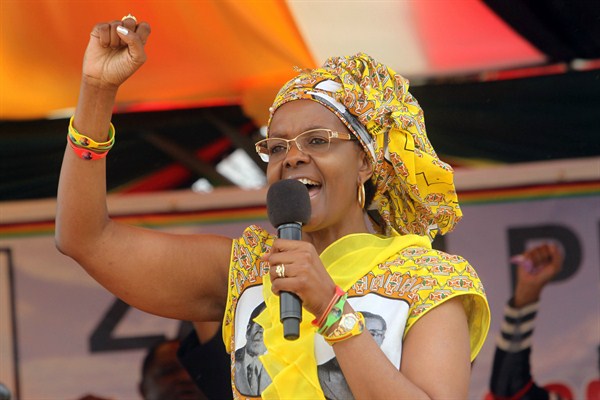Zimbabwe’s ruling party, ZANU-PF, held its annual conference at Victoria Falls on Dec. 11 and 12, an event preceded by meetings of the party’s politburo and central committee. Although these gatherings were ostensibly exercises to take stock of the party’s work over the past year, in reality they were dominated by a single issue: the question of who will succeed 91-year-old President Robert Mugabe.
Mugabe’s succession has become the elephant in the room of Zimbabwean politics, an issue that everyone is invited to ignore while simultaneously discussing little else. The succession question defines the country’s domestic scene and continues to paralyze its decision-making processes—yet officially its very existence is denied. The ruling party maintains its formal, if bizarre, position that the question has been settled for the foreseeable future and that Mugabe will lead ZANU-PF into the 2018 presidential election, when he will be 94.
However, closer scrutiny of both the under-the-radar and more overt maneuvers within ZANU-PF suggests that the gulf between this official position and the reality of a party consumed by factionalism and obsessive plotting over its leadership has never been wider. This seemingly endless saga is symptomatic of a malaise and captures in microcosm the dysfunctional nature of Zimbabwe’s politics. The country remains hostage to a leader who is now manifestly unfit to govern and a party that prioritizes the preservation of power, and the access to state resources it guarantees, over sound administration.

